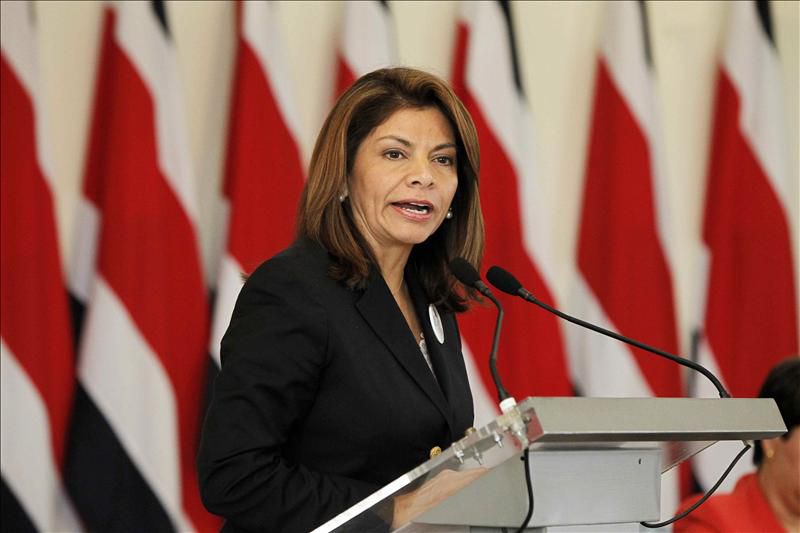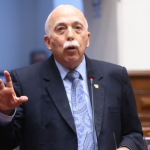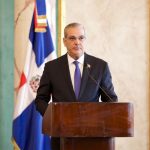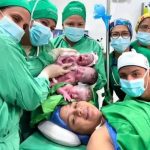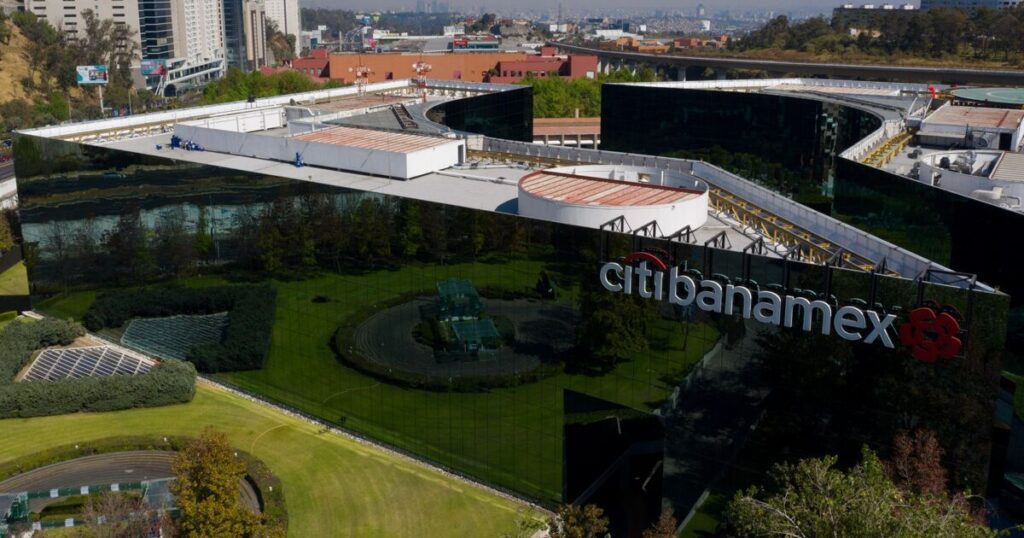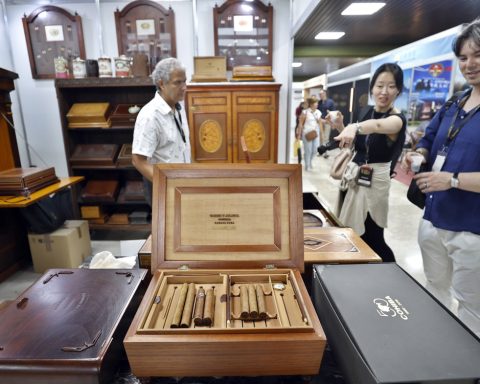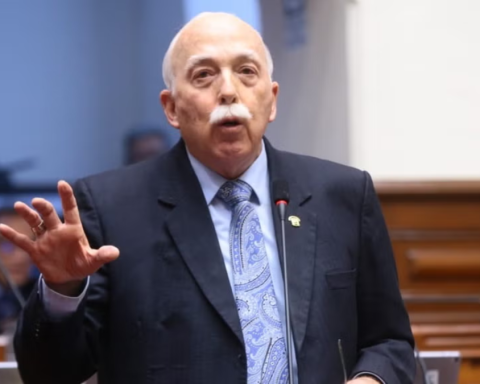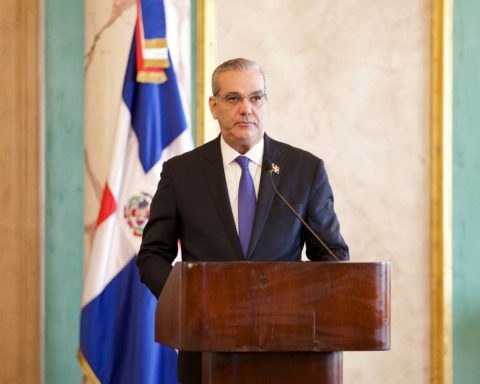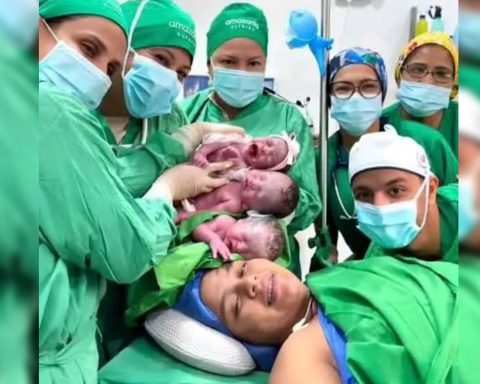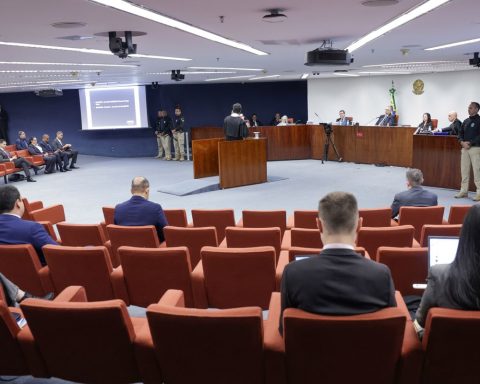After Daniel Ortega and Rosario Murillo’s “self-incrimination”, the international community and the Organization of American States (OAS) no longer have “time for more diagnoses” on the illegitimacy of their Administration, as values the former president of Costa Rica, Laura Chinchilla . Instead, it warns that they should move towards the application of more economic, financial, and commercial sanctions and – even – Article 21 of the Inter-American Democratic Charter.
In the opinion of the former Costa Rican president, the Ortega and Murillo regime he will only leave power if he feels “suffocated” and to achieve this “we must act in a consistent, coordinated and very drastic manner at the international level.” For this reason, all diplomatic efforts must aim – at a minimum – to a kind of schedule, in which Ortega commits “to initiate credible actions, starting with the release of political prisoners.”
During a interview with the program Tonight Y CONFIDENTIALChichilla points out that, since the electoral farce of last November, the international community has been acting in a “more timely, more drastic and more concerted manner” against the regime. However, the sanctions that are being applied “have to be supported by a diplomatic platform and a slightly clearer and more consistent strategy,” so as not to affect the Nicaraguan people.
How should the international community take this proposal by Daniel Ortega as a “clean slate”, after the state repression from 2018?
It is the same line of the speech that he gave immediately after the electoral farce. That is to say, signs that there will be no sign of remorse, of granting some responsibility for what happened in April 2018, that He is not interested in reviewing absolutely nothing, not even decisions to incarcerate political prisoners. Simple and simple, it seems to me that it facilitates the conclusions to which different sectors of the international community urgently arrive, and that is that with Daniel Ortega there is no illusion that we can expect opening gestures, reconciliation gestures or negotiation gestures.
Gonzalo Koncke, chief of staff of the OAS Secretary General, mentioned that in the past the OAS had succeeded in speaking with Ortega and Murillo … and that they continue to work to achieve an entry with the Nicaraguan authorities. Do you think there is such a possibility?
The fact that the representative of the OAS has cited this set of efforts and that he ends up acknowledging that nothing happened …, what he does is – rather – contribute to that conclusion that most of them seem to me reached today, and that is that We can’t get any more illusions about Daniel. It is true that any road must continue to be built on a diplomatic platform, but not betting more on Daniel’s goodwill. Daniel will only move if he feels like he is suffocating, and to suffocate Daniel you have to act consistently, coordinated and very drastically on the international level.
How do you see the role of the OAS then? What comes next?
What I fear is that (Daniel Ortega) will say that people can come (to Nicaragua). Let him say yes, send a group of people and just start buying time as he did in previous years, because here the issue is no longer whether he is willing to be advised or go to observe after he succeeded. what he wanted, which was to hold on to power. Here the issue is if you are already in a position to implement the modifications, there is no time for more diagnosesHere, any mission, any new administration has to aim, at the very least, at a kind of schedule in which he commits himself, in the short term, to initiate credible actions, starting with the release of political prisoners.
So what do you think the OAS should do now?
No more time. If at this point, after almost a month after the last administration was made, (Ortega) has not responded and rather slammed the door in the face of the OAS advancing towards the fifth term, it seems to me that there is already to take the next step, which is to move towards the application of Article 21 of the Inter-American Democratic Charter.
In general, what else can the international community do now that Daniel Ortega has taken office without any legitimacy?
We have seen in recent weeks, particularly since the electoral farce, a more timely, more drastic and more concerted action by the international community, particularly by those nations that have more capacity to apply sanctions that hurt the regime, such as they are the European Union and the United States. So my recommendation is follow that line, but advancing not only to individual sanctions, which have to cover more people, but also moving towards sanctioning key Nicaraguan institutions, such as the Army and the Central Bank …, and finally considering financial, economic and even commercial sanctions.
What other international bodies do you think could influence the crisis in Nicaragua, is it mentioned, for example, the Vatican?
Absolutely nothing should be claimed from the Catholic Church in Nicaragua, it has been a heroic Church, committed to the values it professes and close to its people in these difficult years. However, the silence of the Vatican has been more than notorious and a message, some action at the level of diplomatic efforts, even if they were very low-key, it seems to me that they are necessary.
What other measures do you think the international community can take, in addition to the sanctions that several countries have imposed?
The sanctions that are suggested must be supported by a diplomatic platform, a slightly clearer and more consistent diplomatic strategyIf not the sanctions for the sanctions, what they do is end up prolonging the suffering of the people who are being subjected. For this platform to be successful, we must continue working to add a group of nations that will sustain itself over time. In this sense, the role of the OAS will continue to be important, because let us see that there was also a change towards the end of the previous year, two-thirds of the OAS had already voted against the Nicaraguan regime. This hemispheric alliance must be strengthened so that it continues — at the diplomatic level — sending the messages that are required.
The fact that no government accompanied Daniel in the show (the investiture) that they staged 48 hours ago, except for two equally autocratic and dictatorial leaders like him, Venezuela and Cuba, and one that practically does not count because he is already leaving his country . We need to sustain these kinds of messages from Latin America, to give more legitimacy also to the actions that the United States or the European Union, more drastically, are taking. Finally, I feel that international organizations must be added, the United Nations must play a more leading role, also international cooperation, and on the part of financial organizations, mechanisms must be designed to ensure that this aid is not being instrumentalized by the regime based on its objectives.

You mentioned the importance of reviewing Nicaragua’s participation in CAFTA. What would be the objective, by review we mean expulsion?
I always suggest it as one of the extreme measures and applied very cautiously and selectively. In other words, it is not a question that all the conditions it contains are canceled overnight in Nicaragua. CAFTA. I do not see why it is necessary to condemn all the productive sectors in a single action, but some clauses can be activated for some sectors, especially those where there are strong investments on the part of the Ortega Murillo family or some of its allies. It seems to me that there is room and scope to do this.
The Alliance for the Development of Democracy, which recently established Costa Rica, Panama and the Dominican Republic, expressed its concern about the situation in Nicaragua. What can these neighboring countries do in this new stage of the illegitimacy of Daniel Ortega?
I believe that it is an important message that is being sent, it is a kind of contrast between three governments – which are part of SICA – in which at this moment there are optimal conditions from the ethical and moral point of view to defend democracy, because they are three countries where, far from seeing signs of deterioration, we are seeing rather efforts to sustain and improve democratic processes, but – in addition – they are countries that can help through a more proactive diplomacy than has been so far. Among them, three can help to find channels of communication with representatives of the Ortega Murillo regime and also help to better guide some decisions that the Central American countries have taken that have not been the most convenient; for example, the resources that have been released to the regime through the Central American Bank for Economic Integration.
Costa Rican Foreign Minister Rodolfo Solano mentioned that Costa Rica’s diplomatic approach is pragmatic, but also with priority on democracy and human rights. How should the next Costa Rican government that will be elected in less than a month act?
It seems to me that, in general terms, Costa Rica’s foreign policy undergoes little change every time there is a change in the government, in the governing authorities. It is true that we are a few days away from the elections in Costa Rica and it is true that the outlook is very difficult to foresee …, however, beyond consistency with democratic values, we are going to require a more proactive role than we have. seen lately. With this I do not mean that Costa Rica must transfer certain types of gestures, because in a very realistic way we have to recognize that we are very at the mercy of the decisions of the Government of Daniel Ortega, any commercial flow from Costa Rica with the Central American economies has to be transferred throughout the territory of Nicaragua and Daniel has always been ready to respond by closing the borders. So it is a delicate balance, but I do believe that there has to be a much more proactive attitude on the part of the next government.
